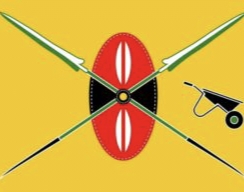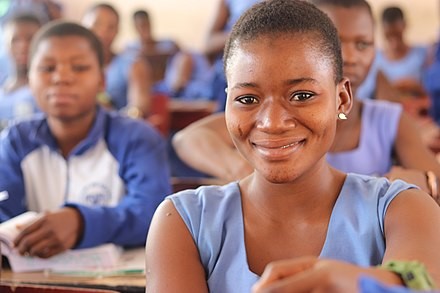The rising generation of African youths as leaders are seen as a rising hope for the continent.
This is because African youths in leadership play a critical role in building accountability for successful economic transformation, representation, and public service.
About 14 percent of African leaders are young people, though this is not good enough, it is not still bad to know that young leaders are emerging daily and taking part in changing and championing the affairs of the continent.
African Youths have risen from being neglected in taking decisions on the affairs that border on the continent to now where they are seen occupying positions like the presidencies, councils of ministers, parliaments, national committees, corporate boardrooms, and civil society organizational teams.
This article focuses on Abiy Ahmed, one of Africa’s youngest democratically elected leaders, and how he has made an impact in his country as a young Prime Minister which has earned him the ALM’s Young African of the week awards.
Abiy Ahmed is one of Africa’s youngest leaders that became the Prime Minister of Ethiopia in April 2018. He was born in 1976.
As an African youth and an Ethiopian Prime Minister, he was awarded the Nobel Prize for Peace in 2019 for his efforts toward attaining peace and international cooperation, particularly for his work to end his country’s long-running border dispute with its neighbouring country, Eritrea.
Abiy Ahmed’s early military life
Abiy Ahmed served in the military before venturing into politics.
He fought against the Derg (Dergue) regime, that ruled Ethiopia from 1974 to 1991.
He had also served in the Ethiopian National Defence Forces, where he achieved the rank of lieutenant colonel.
While he was in the military, he earned a bachelor’s degree in computer engineering in 2001 from Microlink Information Technology College in Addis Ababa.
In 2007 he was made head of the Information Network Security Agency, the Ethiopian government’s organization responsible for cybersecurity.
Abiy’s Educational and Political Journey
He later left the military to begin his political career. In 2010, Abiy got elected to the House of Peoples’ Representatives as a member of the Oromo People’s Democratic Organization (OPDO), which was part of the Ethiopian People’s Revolutionary Democratic Front (EPRDF) ruling coalition.
In 2011, he earned a masters degree in transformational leadership from the International Leadership Institute in Addis Ababa, in partnership with Greenwich University in London.
Furthermore, he got a master’s in business administration in 2013 from Leadstar College of Management and Leadership, in partnership with Ashland University in Ohio; and a doctorate from the Institute for Peace and Security Studies of Addis Ababa University in 2017.
In 2016, Abiy Ahmed was appointed minister of science and technology in the federal government but left in October of that same year, to serve as the vice president of the Oromia regional government.
Within the OPDO party, Abiy was elected head of the secretariat in 2017.
In 2015 the Oromo people protested over a plan proposed by the EPRDF-led federal government to enlarge Ethiopia’s capital, Addis Ababa, by linking the city to parts of the Oromia region.
The protest became worst in 2016 and led to a broader array of grievances against the government, occurring in Oromia as well as in other regions.
In early 2018 the government began making overtures to ease tensions and promote dialogue between itself and the opposition groups.
This was followed by the unexpected resignation of Prime Minister Hailemariam Desalegn in February, after which Abiy emerged as the leading candidate to replace him.
Prime Minister Abiy was elected chair of the OPDO party in February, positioning him to become the chair of the EPRDF ruling coalition.
He was elected to that position on March 27. On April 2 the House of Peoples’ Representatives elected him Prime Minister which got him sworn in on the same day.
Abiy became the first Oromo to serve in that position, and there was hope that his election would help quell the remaining tensions between the Oromo people and the government.
Impact as An African Youth and Ethiopian Prime Minister
Prime Minister Abiy was able to make progress in Ethiopia by bringing up new reforms. He made efforts to bring about dramatic changes regarding strengthening the democratic process, improving the economy, and resolving the country’s long-standing border conflict with Eritrea.
During his first year, he made sure he released so many political prisoners, and some opposition groups were removed from the government’s list of organizations that it deemed to be terrorist groups.
He later signed a peace agreement with one of the groups, which was designed to end more than 30 years of conflict in the Ogaden region.
Abiy also unveiled measures to encourage investment and boost economic growth. He made sure to run an inclusive government where women were fully represented.
That was the first time the Ethiopian government experienced its first gender-balanced cabinet.
The most significant achievement of Abiy’s led government was the peace agreement with Eritrea. On June 5, 2018, the Ethiopian leader announced that his country would adhere to the terms of the year 2000 peace agreement that had been intended to end the border war with Eritrea that had begun in 1998.
The agreement entails accepting and implementing the 2002 ruling that demarcated the border between the two countries, which Ethiopia had previously rejected.
The next month, Abiy went to Eritrea to meet with that country’s president, Isaias Afwerki where both leaders agreed to re-establish ties between the two countries in the areas of diplomacy, trade, communications, and transportation as well as to reopen their borders.
This was followed by a momentous joint statement from Abiy and Isaias on July 9 declaring that the state of war that had existed between both countries for 20 years had come to an end.
As young as Abiy is as a leader, he engaged in resolving other regional conflicts. He served as a mediator in conflicts between Eritrea and Djibouti and between Kenya and Somalia and in Sudan’s civil conflict.
In 2019 Abiy became the recipient of the Nobel Prize for Peace for his efforts to resolve Ethiopia’s border conflict with Eritrea.
Hopes abound in the youthful continent that many of its young and visionary youth would rise to prominence as a beacon of hope and light not just to the continent but to the entire globe.


